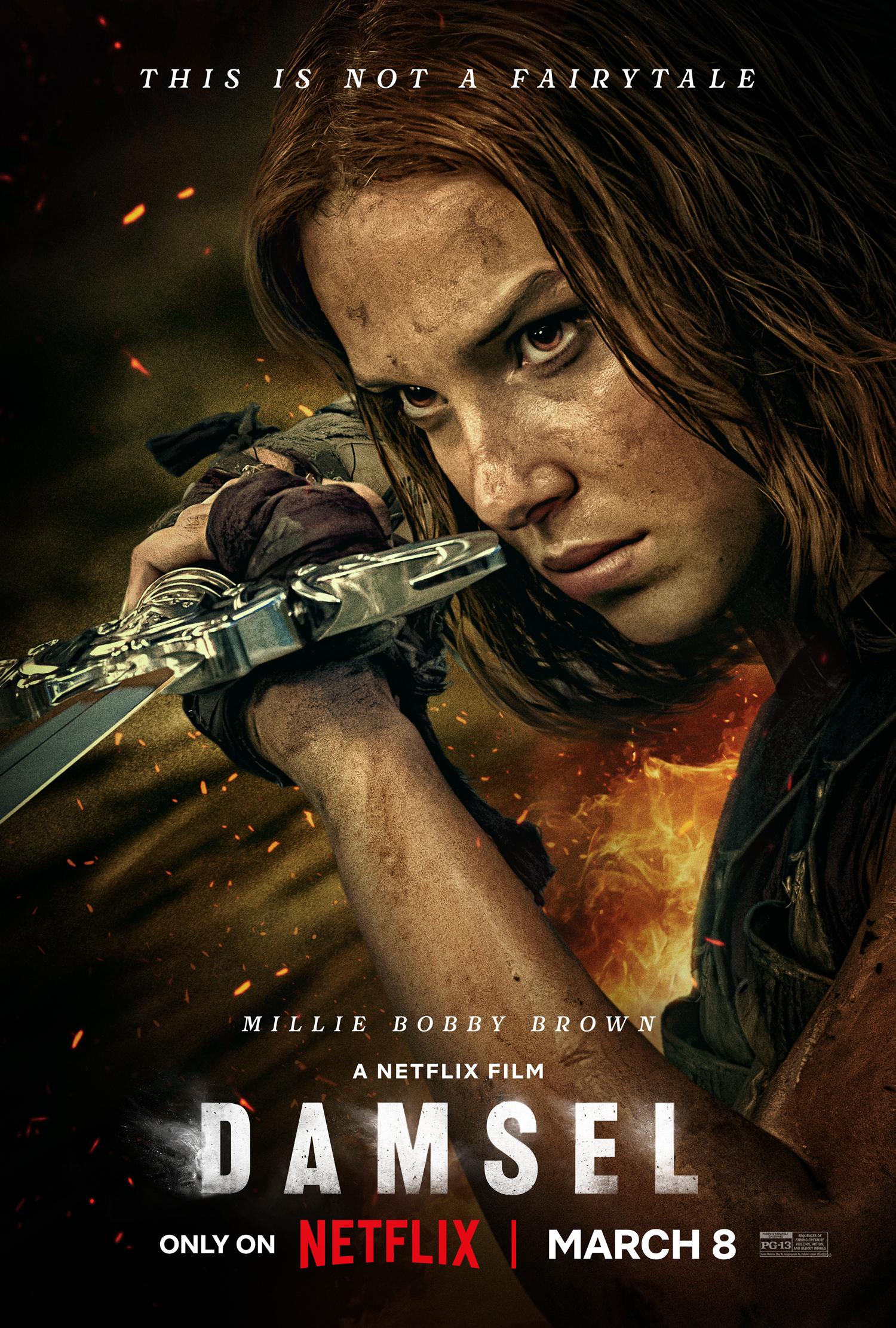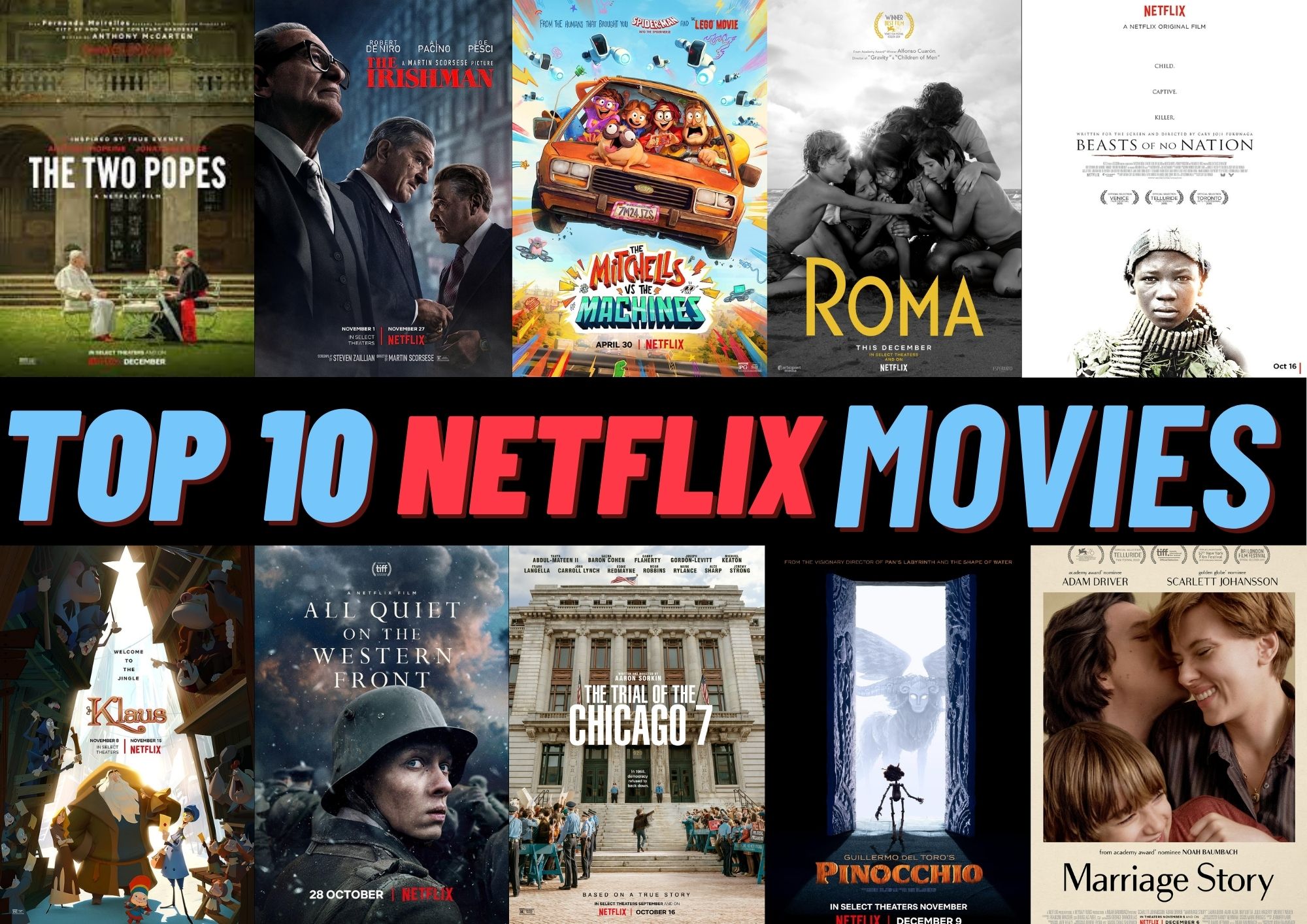Although “Damsel” on Netflix is a timeless story, it sadly finds it difficult to inject fresh energy into a conventional plot.
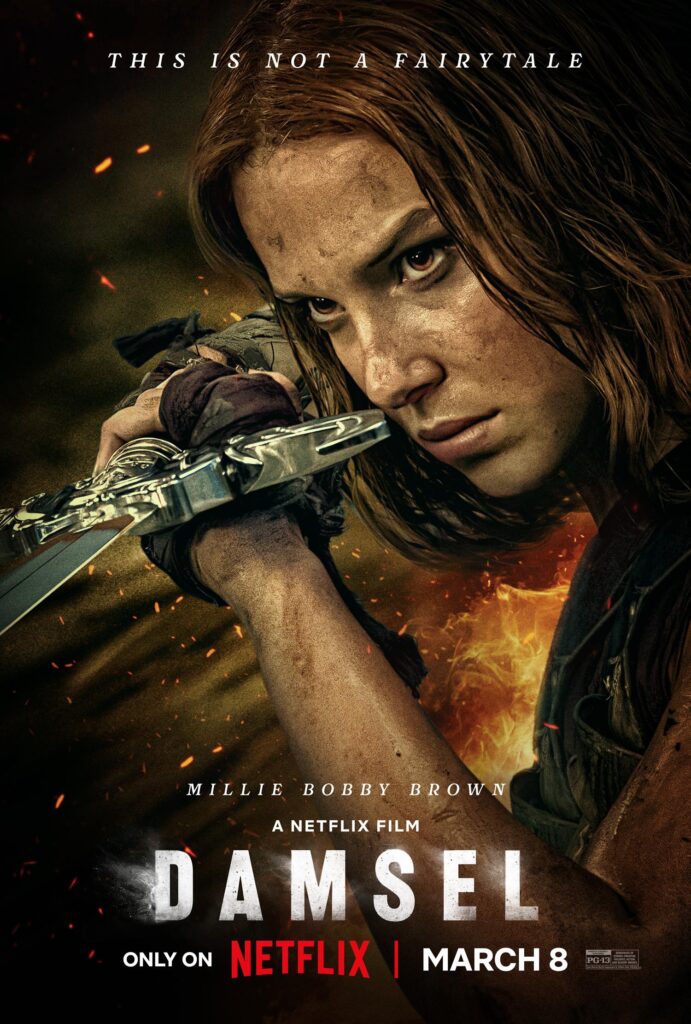
Millie Bobby Brown’s most recent venture outside of Stranger Things, directed by Juan Carlos Fresnadillo and written by Dan Mazeau, offers a dark fantasy universe that promises to subvert genre norms, but in the end, it just delivers a dragon-sized disappointment.
The redhead Brown adopts the persona of yet another Netflix heroine whose name starts with the letter “E” (that would be Eleven from Stranger Things and Enola Holmes, if you’re keeping track). She’s Elodie this time, a noblewoman with a taste for dangerous situations.
Even while the dragon itself has a unique quadrupedal form and lets forth an amazing, historically accurate viscous breath, its taunting grow old and childish as it reiterates, “This story always ends the same.”
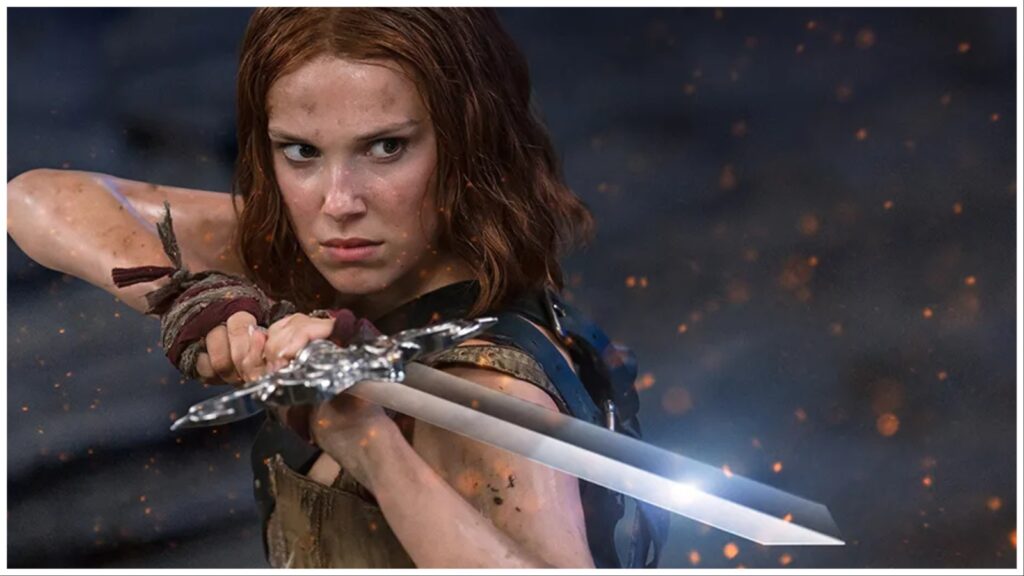
The film’s inventive costume design and Tolkien-esque scenery make an impressive visual impression. But as soon as Elodie enters the dragon’s lair, the narrative loses direction and becomes much worse.
As the VFX grows stale and the story loses its spark, what follows is a patchwork of creature-feature and survival thriller clichés, with Elodie wandering caverns that appear more like cramped rides in theme parks than anything truly horrific.
Furthermore, although initially evocative, Hans Zimmer’s flamboyant soundtrack grows progressively more obtrusive, undermining rather than elevating the watching experience. Soaring orchestral crescendos drown out moments meant to inspire suspense or emotion, lessening the effect of important sequences and adding to the overall sense of tonal inconsistency throughout the picture.
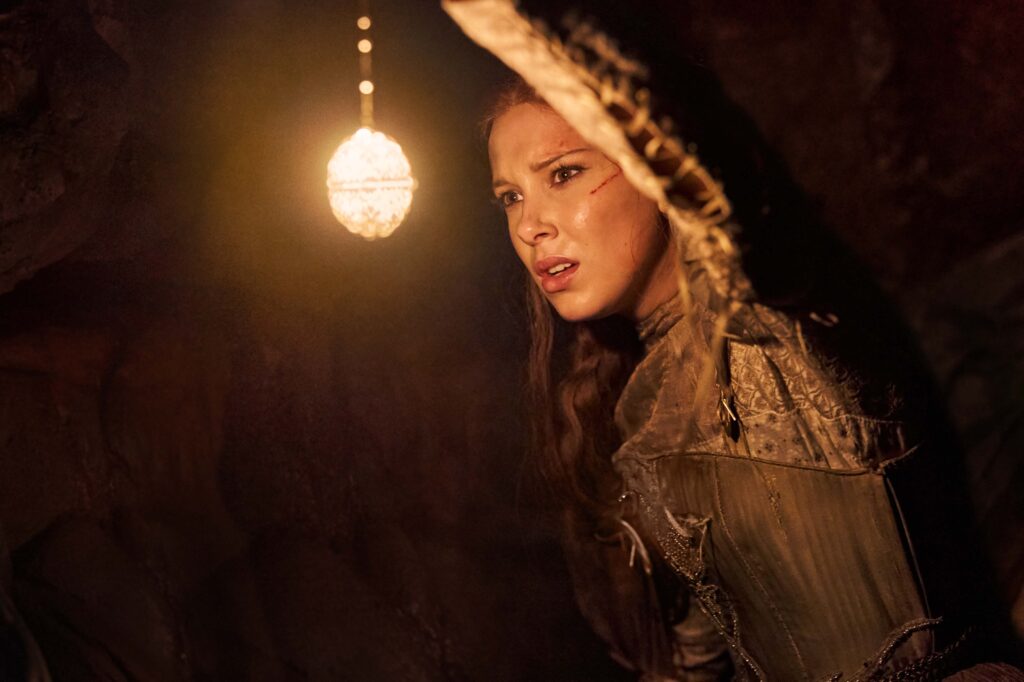
The movie’s dependence on worn-out cliches and extravagant outfit selections grows dated as Elodie’s journey progresses. As Elodie’s battle-ready costume starts to resemble an uncomfortable bustier rather than battle armour, the “Chainmail Bikini” discussion over unsuitable fantasy gear resurfaces, contradicting our protagonist’s growing scantiness in relation to the film’s genre-defying overtones. The film’s attempts at subversion are undermined by this distracting decision.
As the story comes to a close, the “plot-armoured” protagonist defeats the repugnant beast, but not before saving it from a burning end it set for itself and winning its loyalty. (Key lesson: make sure your inventory always includes bioluminescent snails.)
Regretfully, in the muck of mediocrity, not even Brown’s heroic attempt—who gives Elodie a strong feeling of resolve and fortitude—can make a lasting impression. The film’s supporting cast, which includes Ray Winstone, Nick Robinson, Shohreh Aghdashloo, Angela Bassett, and Robin Wright, leaves viewers wanting more from the story in the way of nuanced character development and interesting character relationships.
The movie falls short of its lofty objectives in trying to combine themes of strength and atonement with aspects of dark fantasy. Though ardent fantasy lovers or those looking for thoughtless entertainment may find it appealing, discerning viewers are unlikely to find anything to appreciate in this dull offering.
In the end, Damsel feels less like a triumphant tale of empowerment and somewhere along the lines of how to train your dragon on International Women’s Day.

